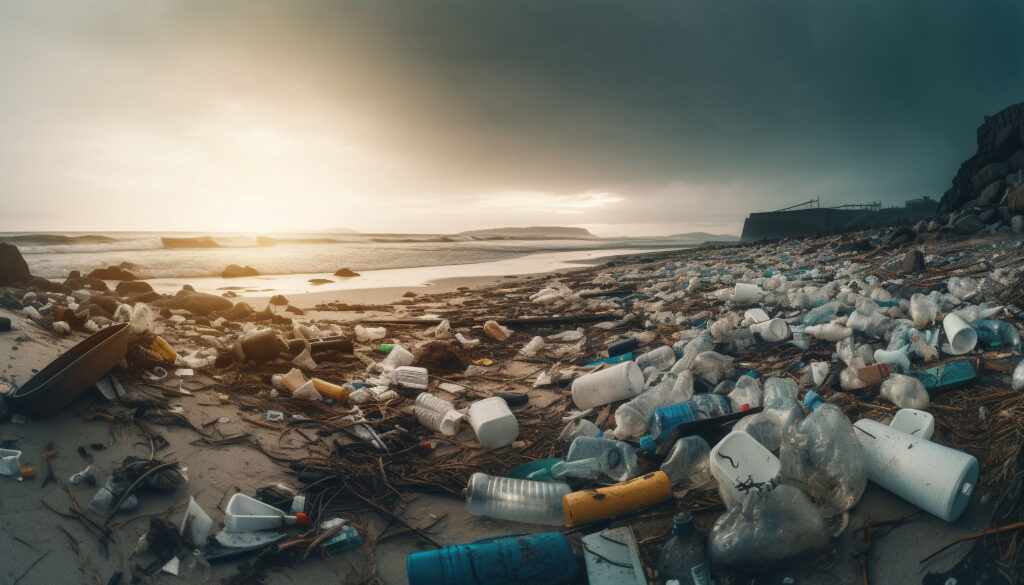Thanks to GSP+, the Generalised System of Preferences Plus, the textile industry is a real pillar of Pakistan's economy. This programme enables developing countries to benefit from exemption from customs duties. The countries concerned must, however, undertake to comply with certain standards, including those relating to human and workers' rights. In Pakistan, a country benefiting from this status, violations have been reported in several companies, according to a report by the NGO Human Rights Watch. Wide angle on the issue.
Report by the NGO Human Rights Watch
Textiles are a key pillar of Pakistan's economy. It accounts for 70 % of the country's export share, thanks to the Generalised System of Preferences GSP+ granted by Brussels in 2014. This programme offers beneficiary countries the abolition of customs duties on products destined for Europe. In return, these countries must implement 27 international agreements. These cover human rights, workers' rights, the environment and good governance.
However, the NGO Human Rights Watch has observed violations of these rights in Pakistani textile companies, both large corporations and small workshops. The latter are particularly notorious for their deplorable working conditions. For example, workers are hired on the basis of simple verbal contracts, with no job security or benefits. Employers also refuse to pay the legal minimum wage and go so far as to recruit minors, even children. Transgressions have also been observed in large factories: working hours in excess of the legal threshold, prolonged temporary employment, verbal aggression, etc.
Unions banned
In Pakistan, the authorities have long lost control over the textile industry. The country has just 547 labour inspectors to monitor the 300,000 existing factories. Only the international brands manage to impose a few safety rules through their own inspections. Here again, Human Rights Watch has observed shortcomings in compliance with these regulations. The lack of transparency in supply chains is a glaring example.
Indeed, international clothing brands are reluctant to disclose the list of their suppliers. These suppliers, in turn, use dubious methods in their work. They subcontract most operations. This makes it difficult, if not impossible, to trace the source and routes of supply. In the process, they cheat their customers and infringe workers' rights. A clear example of this bad practice is the Karachi incident in 2012. A textile factory caught fire, killing 255 workers. The factory had used a false certificate of compliance with standards.
Workers' rights are clearly under threat. They lack social and, above all, trade union protection. According to the report by the defenders of workers' rights, several large companies have implemented manoeuvres aimed at dismantling trade unions. For example, they only offer employees short-term contracts. This is to discourage them from joining and participating in union activities. On the other hand, they create obstacles to the registration of trade unions by scurrilously using the labour code. Employees who take the initiative are threatened with dismissal, intimidation or worse, assault. Other establishments go so far as to register bogus unions, made up of fictitious or designated employees, in order to make it impossible for workers to have a real union.
The situation of women workers remains the most worrying. Some work from home and are denied any protection or benefits under the labour code. They find themselves at the mercy of their employers, who decide on their pay and working hours. Those working in companies, particularly small factories, do not even have employee status. What's more, they are badly regarded by society. Their work is seen as an attempt to escape family control. Angbeen Mirza, a professor of law at LUMS University in Lahore, notes: "The workplace is rarely a place of emancipation for women, and their families often drop them off and pick them up at the factory gate".
Invisible, unprotected workers
In Pakistan, the majority of workers in textile factories are men. Women are rare, or rather invisible or outside the regulated zones. In fact, companies prefer to recruit women working from home, who are often underpaid. They enjoy no protection, and can neither join the workers' unions nor organise themselves into an autonomous trade union.
Yet the EU's objective in granting GSP+ status to a beneficiary country is to help in "the fight against poverty while respecting human rights and sustainable development objectives". The main aim of this programme is to increase exports and create jobs. However, respect for workers' rights is still virtually non-existent in Pakistan.
And it has to be said that the situation is apparently not about to improve. As Nayla Ajaltouni, coordinator of the Ethique sur l'étiquette collective, points out, without coercive measures or political will, it is difficult to put pressure on Pakistan to improve working conditions. What's more, in 2018, an EU delegation went to Pakistan to see the country's progress in respecting labour law. The EU ambassador, Jean-François Cautain, gave his opinion in the Pakistani daily Dawn. Among other things, he stated that Pakistan must implement the international conventions it has signed and ratified. These words leave no doubt about the working conditions in the country.
SubliSport's commitments: Ethics, Sustainability and Personal Support
As part of our commitment to transparency and education, we would like to share with you the values that guide us every day at SubliSport. We we are committed to do more than just provide sports facilities; we aspire to have a positive impact on the planet and its inhabitants.
- Ethics First: We scrupulously respect working conditions and are firmly opposed to any form of exploitation. Your trust is important to us, and we want to honour this commitment by offering you products that are produced using fair and equitable practices.
- Sustainability at the heart : Aware of today's ecological challenges, we take an eco-responsible approach to the design of our equipment. From the selection of materials to production, every stage is designed to minimise our environmental footprint.
- Tailor-made support : We believe in the power of the collective, whether it's a small local club or a large association. SubliSport is at your side to help you develop equipment that suits yourespectful of your values and those of our planet.
Join us in this adventure for a more responsible and sustainable sport. Together, we can make a difference, for our teams and for the Earth.

